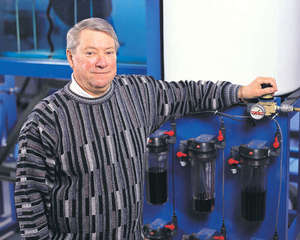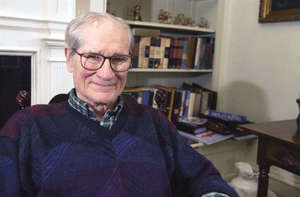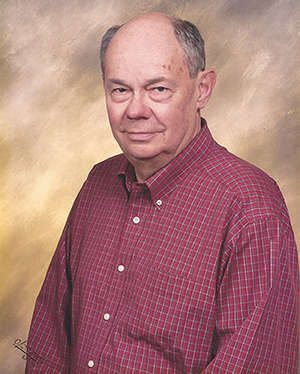
Freshmen Valeria Espinel and Olivia Laura Rojas died after being struck by a vehicle early in the morning on October 24 near the intersection of Ironwood and Bulla roads east of campus.
Espinel, from Guayaquil, Ecuador, lived in Badin Hall and planned to study economics. Rojas, from Santa Cruz de la Sierra, Bolivia, lived in Cavanaugh Hall and intended to pursue a degree in business. Both women were 19 years old.
A third student, sophomore Eduardo Jose Elias Calderón, who is from the Dominican Republic, was injured and required hospitalization.
“On behalf of the entire Notre Dame community, I express our deepest condolences and pray that our students’ families and friends may find God’s grace and solace after so shattering a loss,” University President Rev. John I. Jenkins, CSC, ’76, ’78M.A., said in a message to the campus community.
Hundreds turned out for a prayer service and procession to the Grotto to honor the lives of the lost students. And on October 27, thousands joined together as a Mass of remembrance for Espinel and Rojas was celebrated in Notre Dame Stadium. Some relatives of the two women attended the Mass.
“Family members, we have been blessed to walk among the lights of your two daughters,” said Rev. Pete McCormick, CSC, ’06M.Div., ’15MBA, who delivered the homily. “Know that while this day may pass and memories of this particular moment may fade . . . your daughters will walk with us and our community forever.”

Albin Szewczyk ’56, ’58M.S., a professor emeritus of aerospace and mechanical engineering, was an expert in fluid mechanics — the study of fluids in various states and their reactions to forces on them. The strength of Notre Dame’s fluid mechanics research and reputation, due in large part to Szewczyk’s efforts, helped attract other top scholars to the faculty. “Early on, Al was doing leading-edge work,” such as research using advanced computing in the early 1960s, said Professor Flint Thomas, a colleague in the department.
Szewczyk died August 17 in South Bend. He was 85.
He was born and raised in a Polish neighborhood in Chicago and was a starter on the football, basketball and hockey teams at Holy Trinity High School. After graduating from Notre Dame, he earned his doctorate at the University of Maryland. He joined the Notre Dame faculty in 1965 and served as department chair from 1978 to ’88, with terms as a visiting professor at leading universities in London and in Karlsruhe, Germany. He retired from teaching in 2002, having directed more than 40 graduate students.
Gregarious and friendly with a good sense of humor, Szewczyk had a passion for golf that he passed on to many of his 12 grandchildren and was a regular on the links at the South Bend Country Club. For more than three decades, he was a member of the Algonquin Table at the former University Club, a group of male professors who met daily for lunch.
Szewczyk and his wife, Barbara, who preceded him death, loved to travel the globe. Proud of his Polish heritage, he was moved by his visit to the Auschwitz concentration camp in Poland, where he was especially sad to see the many Szewczyks on the list of the camp’s victims.

Law professor Thomas Broden was a pioneer in clinical legal education and an influential advocate for civil rights and fair housing who served the University, government and South Bend community throughout his long career.
Broden died November 20 at age 96.
Born in Indianapolis, Broden attended Butler University before being drafted into the U.S. Army just before the end of World War II. He earned a bachelor of laws degree from Notre Dame in 1949, then completed his education at the University of Chicago Law School. He joined the Notre Dame Law School faculty in 1950 and taught there — but for brief stints in Washington, D.C. — the rest of his career.
Rev. David Link ’58, ’61 J.D., who would later lead the Law School as dean for 24 years, recalled his former professor as an excellent teacher, but said Broden shared some of his greatest skills outside the classroom. “As a community leader, he was magnificent,” Link said. “He really cared about people. It wasn’t just academic; he really thought about the people for whom he was advocating.”
Broden played a role in the creation of the U.S. Civil Rights Commission in 1956. As counsel to the U.S. House Judiciary Committee, he had charge of the nation’s first civil rights bill since Reconstruction. From 1967 to ’69, he directed training and technical assistance for a federal anti-poverty program, and in 1970, he founded the University’s Institute for Urban Studies, which he directed for two decades. The institute fostered research and activities to promote equality of opportunity, develop strategies for urban ministry and improve the lives of people living in poverty.
By then, Broden had already created the Law School’s Legal Services Program, in which law students assist people in need under the supervision of faculty. The clinic became a model for similar efforts at other law schools. In presenting him with Notre Dame’s Presidential Award in 1976, Rev. Theodore M. Hesburgh, CSC, described him as “a man who has brought the best of the academy to the promise of our city.”
Broden co-founded or helped lead more than a dozen local initiatives, including the South Bend Human Rights Commission, the United Way of St. Joseph County and the United Religious Community, an ecumenical social justice organization. He was an avid gardener, a Chicago Cubs fan, a loving father of five children and a perennial Notre Dame football and basketball season-ticket holder. In 2019, Tom Broden was preceded in death by Joanne, his wife of 70 years.

When Ed Manier was an undergraduate at Notre Dame, his friend Camillus Witzieben discovered a 3-foot statue of Father Edward Sorin, CSC, lying in the snow across campus, removed from its Sorin Hall home. So they took the bronze replica of the giant-sized founder that stands on God Quad to bury it in a sand trap on the Burke Golf Course until they could stash it off campus. The pranksters then conspired with friends as the traveling Sorin reportedly toured the world, sending postcards and letters from Queen Elizabeth’s coronation, Eisenhower’s inauguration, Josef Stalin’s funeral and other far-flung locales. The wayfaring Sorin was delivered to a cheering crowd at the Main Circle via taxi cab shortly before commencement in 1953, the year Manier and Witzieben graduated. (Thus begins one of Notre Dame’s best folk sagas.)
The mischief-maker and native of Versailles, Ohio, earned a master’s degree and doctorate from St. Louis University and returned to his alma mater in 1959, joining the faculty in the Department of Philosophy to begin a 48-year career as a revered teacher and scholar most notable for his elucidation of Charles Darwin, evolutionary theory and related social movements. His intellectual curiosity later sparked a scholarly interest in neurobiology and the philosophy of science, a passion that cadres of students found provocative and inspiring.
The father of seven is also remembered for attending every one of his children’s stage performances and games, for being the chief umpire in a youth baseball league, as a great first reader of term papers, career counselor and travel agent, for taking the family along on sabbaticals when his research took him far beyond campus.
Responding to a request to serve on the transportation committee at a local parish, Manier learned the task meant helping men transition from prison to society — a role he embraced with dedication. He taught courses at Westville Correctional Facility, mentored men released from prison, and was an advocate with various agencies to provide housing and employment — with characteristic care and compassion.
Manier died Thanksgiving Day at age 89.